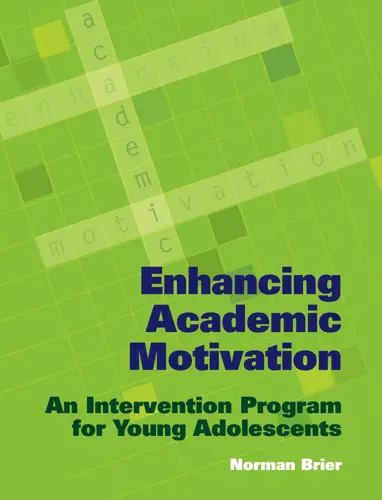Enhancing Academic Research with ChatGPT: Strategies for Scholars

ChatGPT, an advanced language model, has emerged as a valuable tool for scholars seeking to enhance their academic research. By utilizing its capabilities strategically, researchers can streamline and improve various aspects of their work. Below are several strategies for leveraging ChatGPT in academic research:

Literature Review and Analysis: ChatGPT can assist in identifying relevant literature, summarizing key findings, and providing alternative perspectives on research topics. This aids scholars in quickly gaining a comprehensive understanding of existing knowledge and identifying gaps that need further investigation.

Hypothesis Generation and Testing: ChatGPT can help researchers generate novel hypotheses based on existing literature and analyze data to test them. By providing insights and suggesting different angles, ChatGPT stimulates critical thinking and encourages researchers to consider alternative approaches.
Methodology Development: ChatGPT can provide guidance on choosing appropriate research methods and designs, ensuring rigor and validity in the research process. It can also assist in developing research questions and formulating operational definitions.
Writing and Editing: ChatGPT can assist with writing academic papers by generating text, proofreading, and checking for plagiarism. Researchers can leverage its capabilities to enhance clarity, coherence, and grammar, ensuring high-quality written outputs.
Collaboration and Knowledge Sharing: ChatGPT facilitates collaboration among researchers by providing a platform for sharing ideas, discussing findings, and brainstorming collectively. It can help break down language barriers and foster cross-disciplinary research.
Caution and Ethical Considerations: While ChatGPT offers numerous benefits, it is crucial to use it responsibly and ethically. Researchers should always critically evaluate its output, verify information from multiple sources, and avoid plagiarism. Additionally, they should be transparent about the use of ChatGPT in their research and acknowledge its limitations.
Incorporating ChatGPT into academic research requires thoughtful planning and careful integration. By aligning its capabilities with specific research needs and leveraging its strengths strategically, scholars can significantly enhance the efficiency, quality, and impact of their work while adhering to ethical guidelines.## Enhancing Academic Research With ChatGPT: Strategies For Scholars
Executive Summary
ChatGPT, a cutting-edge AI language model, has emerged as a valuable tool for scholars, offering a wide range of potential applications in academic research. By leveraging ChatGPT’s capabilities, researchers can enhance their productivity, expand their research horizons, and gain insights into complex research problems. This article explores the multifaceted ways in which ChatGPT can empower academic research, providing practical strategies for scholars seeking to harness its full potential.
Introduction
In today’s rapidly evolving academic landscape, researchers face a growing demand for innovation and efficiency. ChatGPT has emerged as a transformative tool, offering scholars a unique opportunity to revolutionize their research processes. By leveraging its advanced language processing and knowledge generation abilities, scholars can augment their research capabilities, break down barriers, and make groundbreaking discoveries.
FAQs
-
Is ChatGPT a reliable source of information for academic research?
While ChatGPT can provide valuable insights and generate text, it is important to note that its information may not always be accurate or up-to-date. Researchers should always critically evaluate and verify information obtained from ChatGPT using credible academic sources. -
How can ChatGPT assist with data analysis and interpretation?
ChatGPT can analyze large datasets, identify patterns and trends, and generate reports summarizing key findings. Researchers can utilize ChatGPT’s data analysis capabilities to extract meaningful insights from their research data and enhance the validity of their conclusions. -
Can ChatGPT help with the writing process of academic papers?
ChatGPT can assist scholars in drafting research proposals, structuring manuscripts, and generating text. Utilizing ChatGPT’s writing capabilities can streamline the writing process, allowing researchers to focus on developing their ideas and contribute to the advancement of their field.
Top 5 Subtopics
1. Generating Research Questions and Hypotheses
ChatGPT can generate thought-provoking research questions and hypotheses by analyzing existing literature, identifying gaps in knowledge, and suggesting novel approaches.
- Analyze research gaps: Identify areas where existing research is lacking and generate questions to address those gaps.
- Synthesize multiple perspectives: Draw insights from diverse sources to generate interdisciplinary research questions.
- Develop testable hypotheses: Formulate hypotheses that are specific, measurable, and testable through empirical research.
2. Literature Review and Analysis
ChatGPT can assist scholars in conducting comprehensive literature reviews, identifying relevant articles, and summarizing key findings.
- Automate article summarization: Generate summaries of research articles to quickly grasp the main arguments and key findings.
- Identify influential publications: Identify the most influential studies in a field and analyze their impact on current research.
- Perform citation analysis: Track the usage of specific references and identify emerging trends in research topics.
3. Data Collection and Analysis
ChatGPT can help researchers collect and analyze data, identify patterns, and draw meaningful conclusions.
- Design research surveys: Create and distribute surveys to collect data from a wide range of participants.
- Analyze qualitative data: Interpret and code qualitative data, such as interview transcripts or observations, to identify themes and insights.
- Generate statistical models: Develop statistical models to analyze data, predict outcomes, and test hypotheses.
4. Manuscript Writing and Editing
ChatGPT can assist researchers with writing clear, concise, and impactful academic manuscripts.
- Draft research proposals: Generate well-structured research proposals that effectively outline the research question, methodology, and expected outcomes.
- Enhance writing clarity: Improve the clarity, conciseness, and readability of research manuscripts.
- Detect plagiarism: Identify instances of plagiarism and ensure the integrity of the research content.
5. Dissemination and Impact
ChatGPT can help researchers disseminate their research findings and increase their impact within the academic community.
- Create research summaries: Generate concise summaries of research findings for presentations, conference abstracts, and social media posts.
- Identify potential collaborators: Find other researchers working on similar topics and explore collaboration opportunities.
- Track research impact: Monitor the citations, downloads, and altmetrics associated with research publications.
Conclusion
ChatGPT offers a plethora of opportunities for scholars seeking to enhance their academic research. By leveraging its capabilities, researchers can generate research ideas, conduct comprehensive literature reviews, collect and analyze data, draft compelling manuscripts, and disseminate their findings effectively. As ChatGPT continues to evolve, its potential to revolutionize academic research will only grow, empowering scholars to push the boundaries of knowledge and make significant contributions to their fields.
Relevant Keyword Tags:
- ChatGPT
- Academic Research
- Research Strategies
- Research Writing
- Data Analysis
